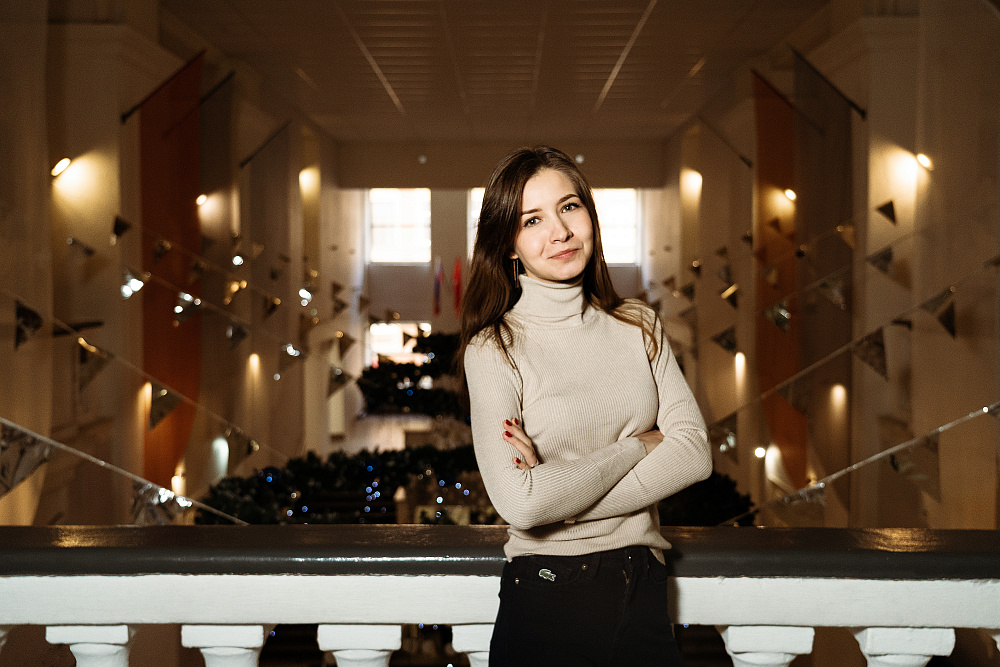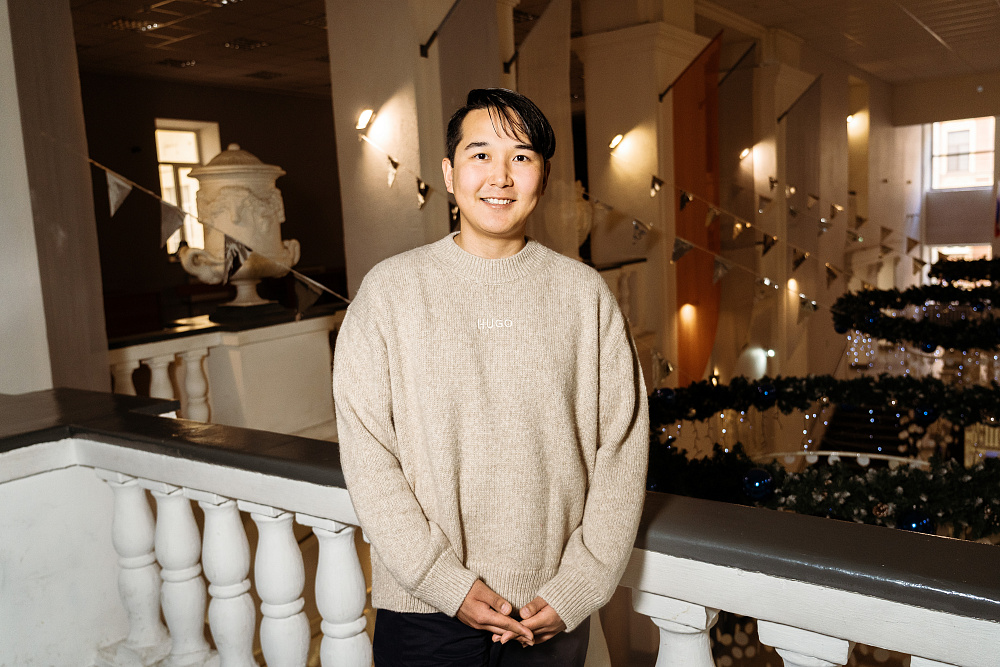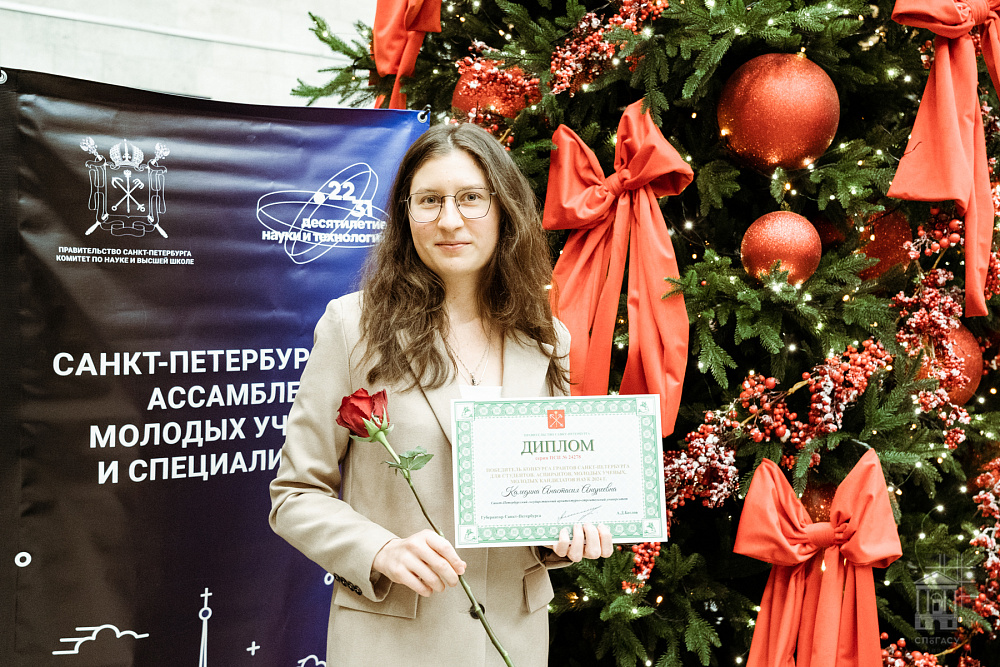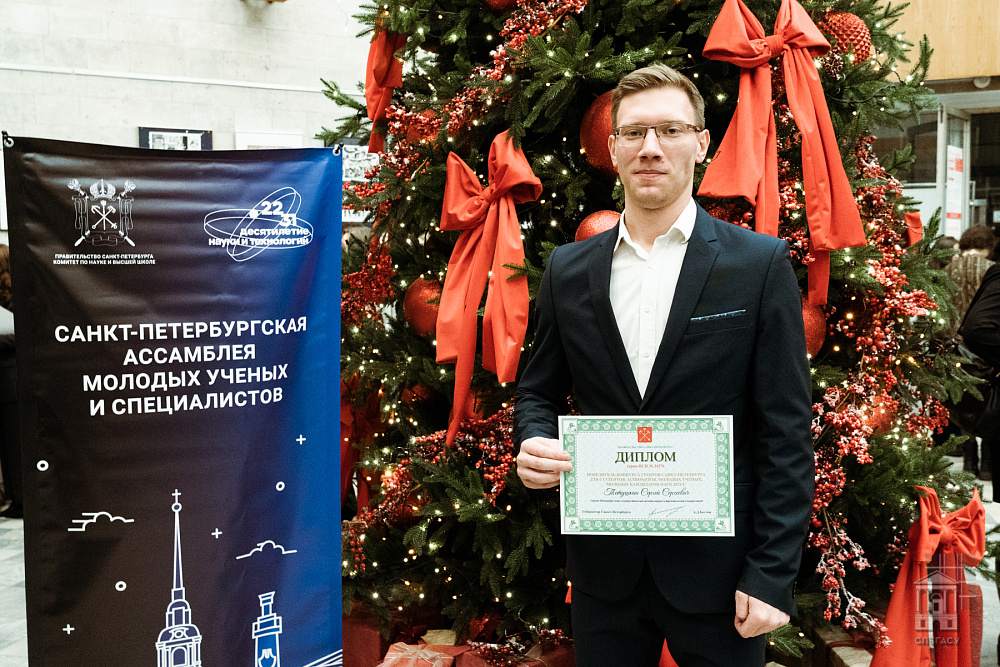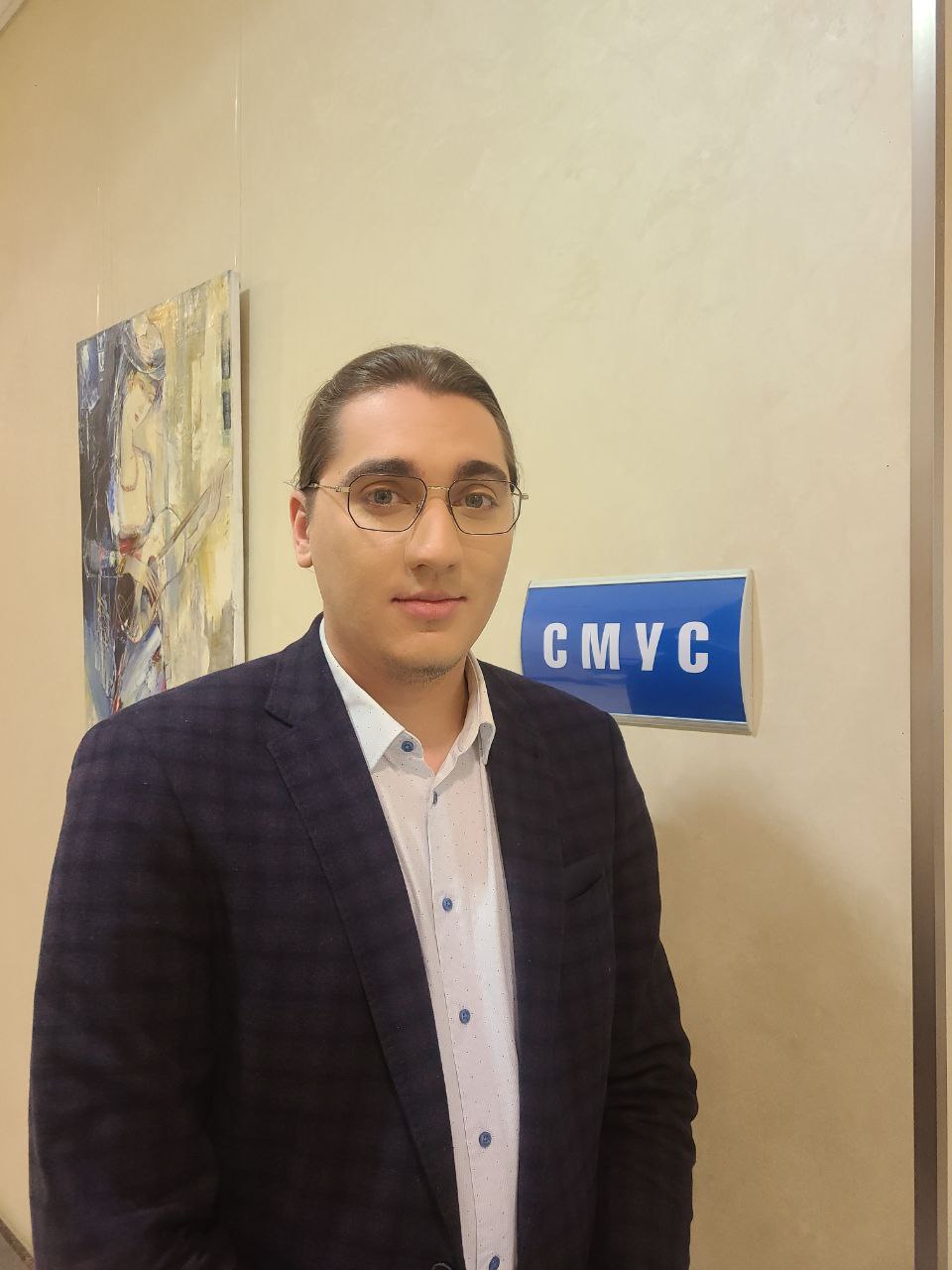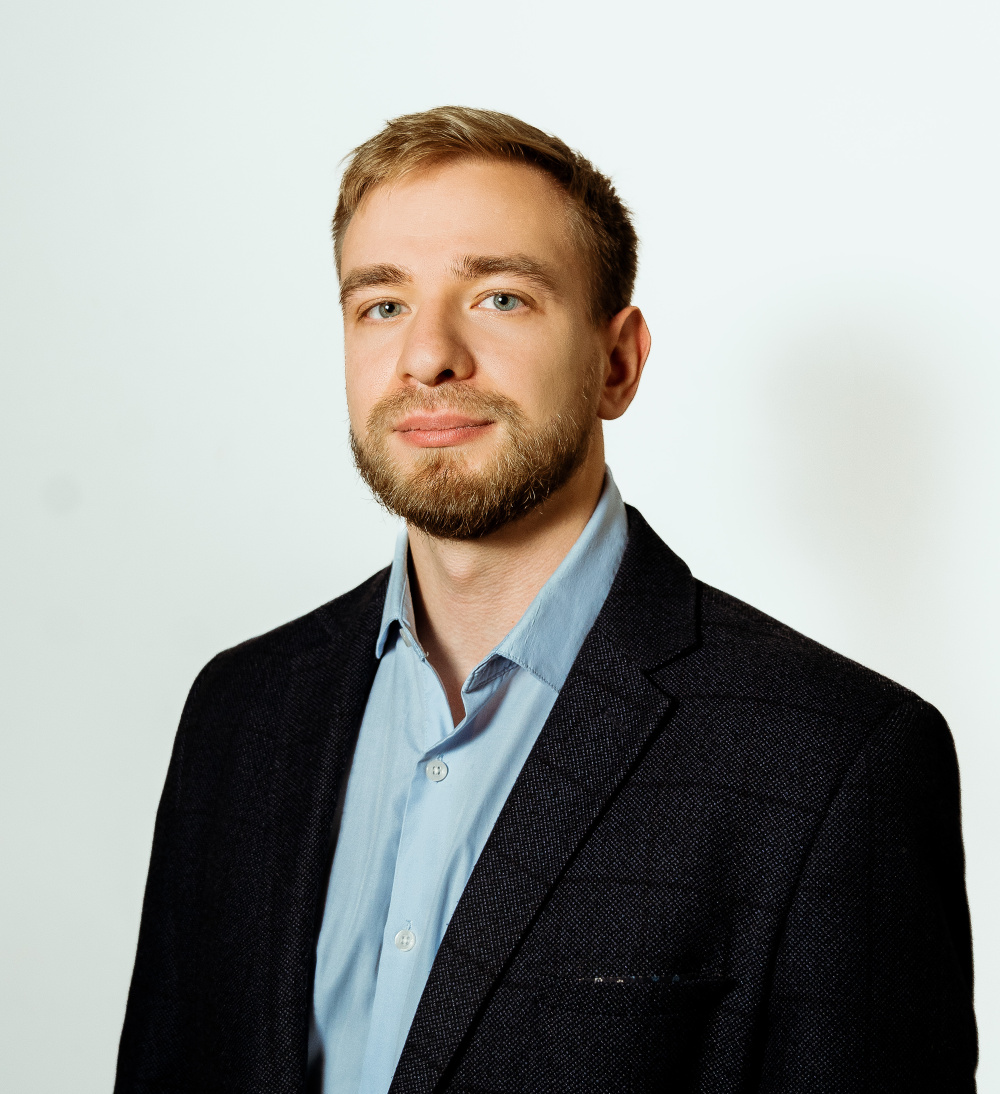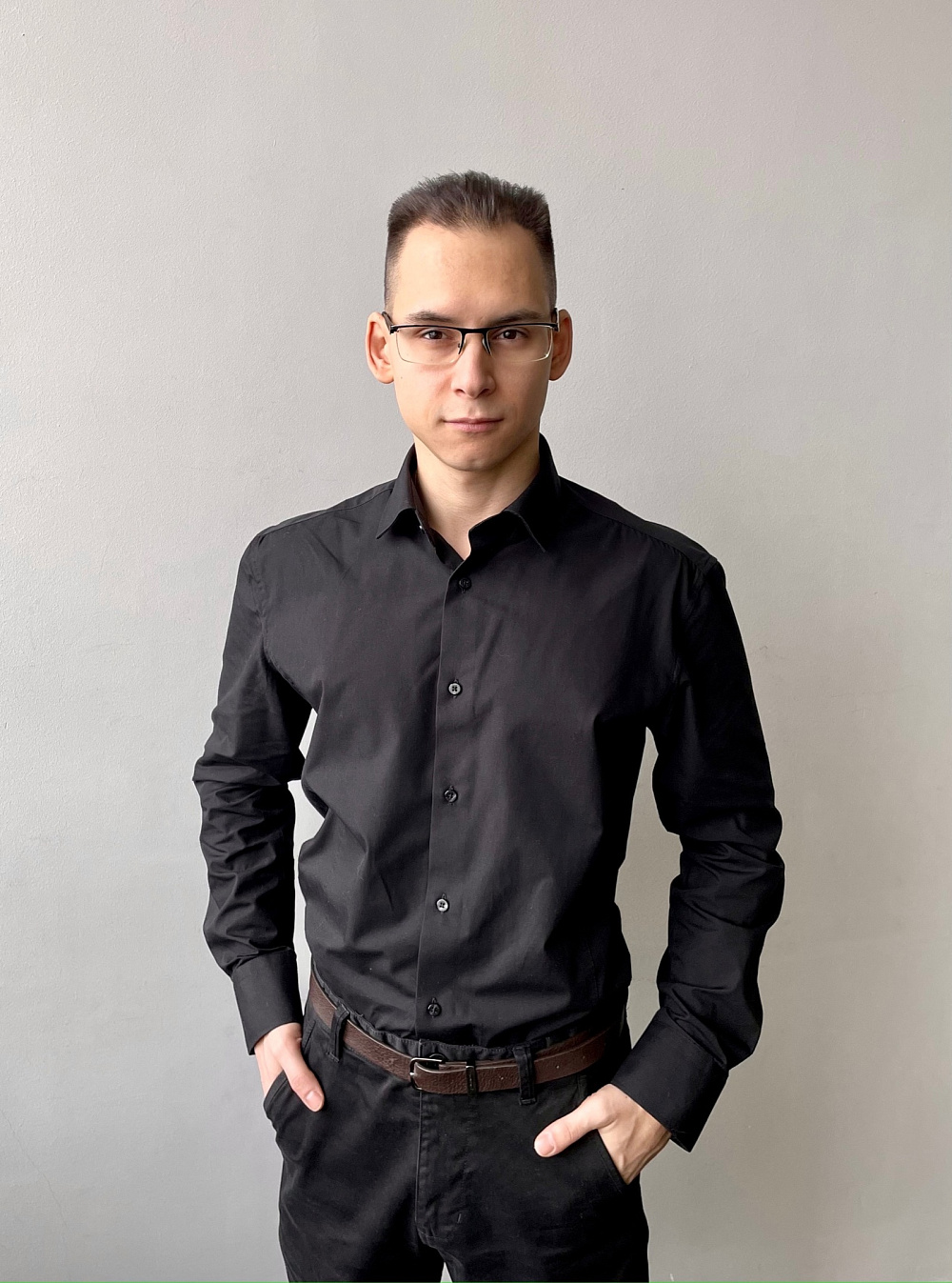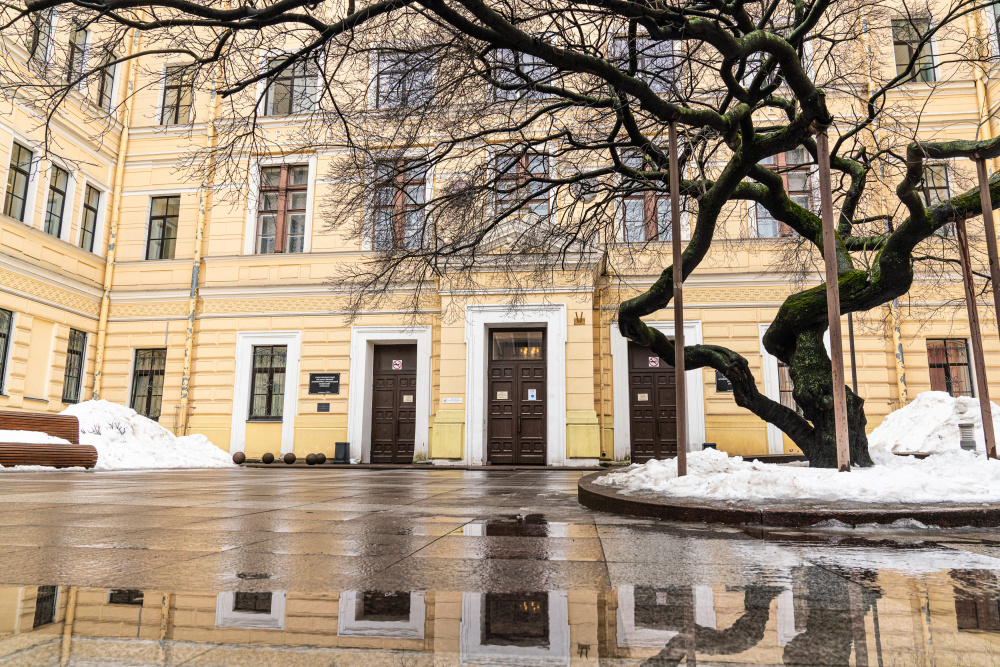
Postgraduate Day is celebrated in Russia on 21 January. The choice of date is connected with the publication in 1925 of documents regulating the system of training scientific workers.
This day is a wonderful occasion to congratulate 297 postgraduate students of our university, as well as their scientific supervisors who support young researchers on their difficult but exciting scientific path.
The topic of Alina Kvashuk's dissertation is "Accounting for the influence of pollution of sandy soils with oil products on deformations of foundations of buildings and structures". Alina's scientific supervisor is Professor at the Department of Geotechnics Rashid Mangushev.
"The relevance of the chosen topic is mainly due to the fact that our country occupies a leading position in terms of environmental pollution by fuels and lubricants, but measures to optimize the processes of oil production, transportation and refining are followed by a low level of accompanying technological processes, which leads, among other things, to soil pollution. This fact cannot be ignored when designing and operating oil complex facilities, since numerous studies have confirmed the negative impact of oil products on the construction properties of soils," believes Alina Kvashuk.
At the moment, Alina has performed more than three thousand laboratory tests to determine the nature and degree of reduction of the entire complex of physical and mechanical properties of soils exposed to oil pollution. The plans include developing a method for predicting the reduction in the bearing capacity of the foundation in the event of an emergency spill of oil products, as well as a method for predicting settlement over time, taking into account the reduction in the filtration properties of the foundation.
Petr Alekseev's interest in studying historical structures arose during his master's studies thanks to his supervisor, Associate Professor Aleksandr Trofimov. At that time, Petr was working on improving the calculation method for vaulted ceilings on metal beams. The topic of the young researcher's PhD dissertation was "Anisotropy of tensile strength of stone masonry in historical buildings in Saint Petersburg."
"Preservation of the historical and architectural heritage of our city is the main goal of my professional and scientific activities. The object of the research is historical stone buildings subject to uneven deformations of the foundation. This type of external impact on existing buildings is the most common, but the mechanics of destruction of brick walls is poorly understood. To date, I have conducted the first stage of laboratory tests: masonry samples were tested at an angle of 45° for tension. This year, I plan to test masonry samples for tension at angles of 0° and 90° to the anisotropy axes," said Petr Alekseev.
The focus of Anastasia Kaledina (supervised by Associate Professor at the Department of Urban Planning Mikhail Vilensky) is urban planning of medical districts in the largest cities of the Russian Federation. The research is the extension of Anastasia's master's thesis.
"The city is currently developing in new ways, typical to the information society. Changes in the medical sphere and the emergence of high-tech medical care influence the development of a modern territorial-spatial form - a medical district," Anastasia is sure.
Currently, the postgraduate student is studying works devoted to the development of a post-industrial city and determines the spatial employment of medical personnel using data digitalization. According to her, some of the main results of the research are the evolutionary development of medical facilities and territorial forms, the typology of medical districts. The results of the work are presented in the journals of the Higher Attestation Commission "Architecture and Construction of Russia", "Urban Studies", etc., and future publications are being prepared. The results of the study have already been presented and are planned for presentation at international and all-Russian conferences in architectural, urban planning and medical fields.
"Improving the analytical method for calculating the first form of natural vibrations of building structures using a correction factor" is the title of Sergey Tetushkin's research, which he is working on under the supervision of Associate Professor at the Department of Construction Mechanics Nadezhda Ostrovskaya. According to the postgraduate student, its relevance is due to the constant need to improve methods and increase the accuracy of calculations of building structures for various external influences, as well as to ensure the safety of buildings and structures, especially in the case of seismic impacts or other dynamic loads.
"The dissertation required conducting all necessary model and full-scale tests. At the moment, research is being conducted at the stage of numerical modeling and analytical analysis. Further actions consist of analyzing the obtained data, summing up the results and testing the results of the scientific research," said Sergey Tetushkin.
Nikolai Mishurenko said that the Department of Information Systems and Technologies, under the supervision of Visiting Professor Vladimir Karpov, runs a scientific school called "Computer technologies for complex research of strength, stability, and nonlinear oscillations of building structures and facilities". Under the scientific supervision of the Department's Professor Aleksey Semenov, the postgraduate student is working on the research "Stability of thin-walled shell structures weakened by cutouts".
"Shells are used in many areas of industry: in shipbuilding, aircraft construction, space engineering, industrial and civil construction. It should be noted that often, for design reasons, it is necessary to arrange technological cutouts that affect the stress-strain state and stability of the structure. In this regard, there is a need to study this type of structures," said Nikolai Mishurenko.
At the current stage, Nikolai is engaged in generalizing the obtained research results and preparing the dissertation manuscript. He associates his further plans with testing the obtained results, defending the final qualifying work and going to the defense in the dissertation council.
Roman Gurdin, under the scientific supervision of Associate Professor Andrey Belyaev, is researching the improvement of the efficiency and reliability of water treatment systems for swimming pools with oligodynamic water treatment. According to the postgraduate student, the relevance of the topic is due to the growing interest of society in environmentally friendly technologies, as well as the increase in the number of people suffering from allergic reactions. The study will attract more visitors to swimming pools in accordance with the Order of the Government of the Russian Federation dated 7 February, 2024 No. 263-r "On approval of the interdepartmental program "Swimming for All"".
"Traditional methods of water disinfection, such as chlorination, have a number of disadvantages, including the formation of by-products, odor, and irritation of the skin and mucous membranes. Oligodynamic water treatment, based on the use of noble metal ions (for example, silver and copper), is an environmentally friendly and effective alternative. However, the impact of oligodynamic technology on the reliability and efficiency of a comprehensive pool water treatment system has not yet been studied, which necessitates research," Roman said.
Currently, the stage of development of the concept of the automatic control unit for the silver and copper ion generation system is being completed. The key aspect is the creation of a control program that will provide automatic control of the concentration of metal ions, monitoring of water quality, as well as adaptation of the system to changing operating conditions of the pool.
Vyacheslav Tonkikh studies the architectural planning organization of coworking centers. His work is supervised by Associate Professor at the Department of Architectural Design Fedor Perov.
"In the modern world, we are witnessing a scientific and technological revolution that is leading to a transition to a new technological order. Living and working conditions are changing, which requires the creation of favorable conditions for innovation both in large scientific teams and among individual researchers, inventors and private entrepreneurs. These conditions must meet the latest standards of convenience, comfort and accessibility, which has been successfully implemented in the coworking format.
In recent years, coworking centers have become an integral part of the modern workspace. The flexibility of the workspace, the ability to network and attend events, as well as the availability of a wide range of services - coworking centers create ideal conditions for visitors," said Vyacheslav.
The postgraduate student emphasized that coworking spaces are often perceived too narrowly – as just simplified office spaces. However, they can vary significantly in terms of capacity, organization of various types of activities, and interaction with a wide range of service institutions. Coworking spaces are an independent type of space and building that has not yet been sufficiently studied, and there are no clear recommendations for the design of such facilities.
The relevance of coworking centers is also associated with changes in approaches to organizing the work process. Modern workers increasingly strive for flexibility and freedom of choice, which makes traditional offices less attractive. The ability to work at a convenient time and in a comfortable environment, interact with people from different fields, and provide venues for events, seminars, and master classes are the advantages of coworking. In the context of globalization and digitalization of the economy, such spaces play a key role in the formation of new forms of cooperation and knowledge exchange.
Thus, coworking centers not only respond to the needs of the modern labor market, but also create a unique ecosystem that promotes innovation and creativity.
"Traditional office spaces and production facilities have clear standards and norms. Coworking centers are often created chaotically, adapting to the various conditions and needs of their users, and, despite their growing popularity, have not previously been subject to in-depth study. Therefore, there is no clear systematization of how exactly their planning structure is built, which elements in it are key to successful work and how it can vary depending on professions and specializations. The solution to these problems is the main one in my scientific work," said Vyacheslav Tonkikh.
We wish the PhD students fruitful work, new ideas and discoveries that will benefit society!







